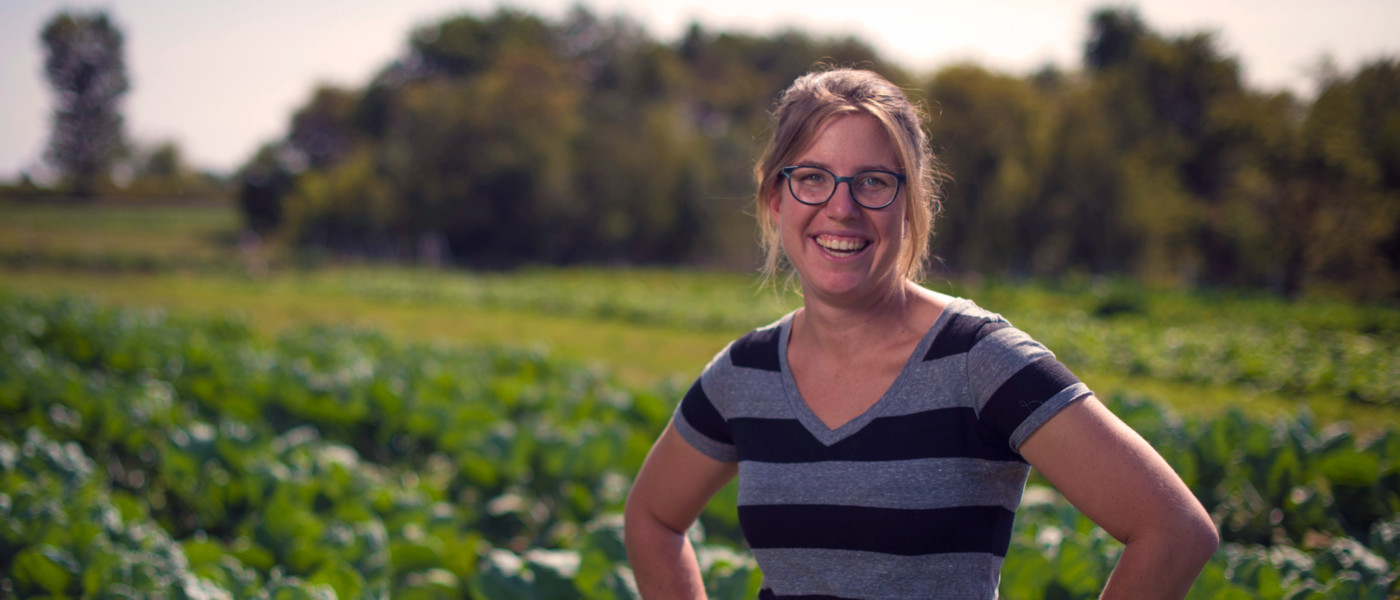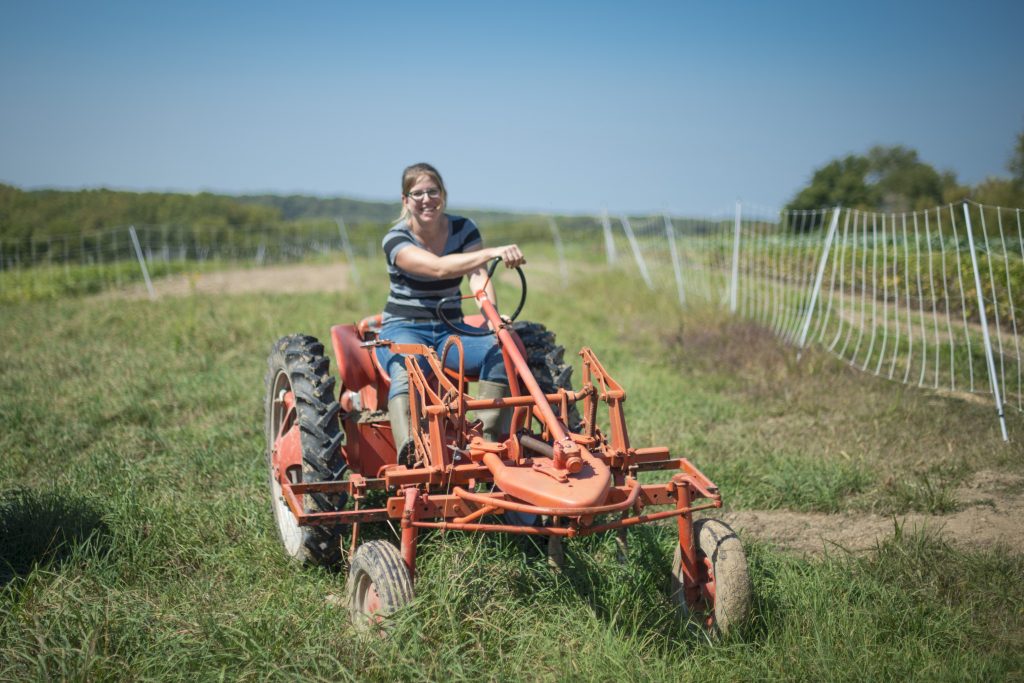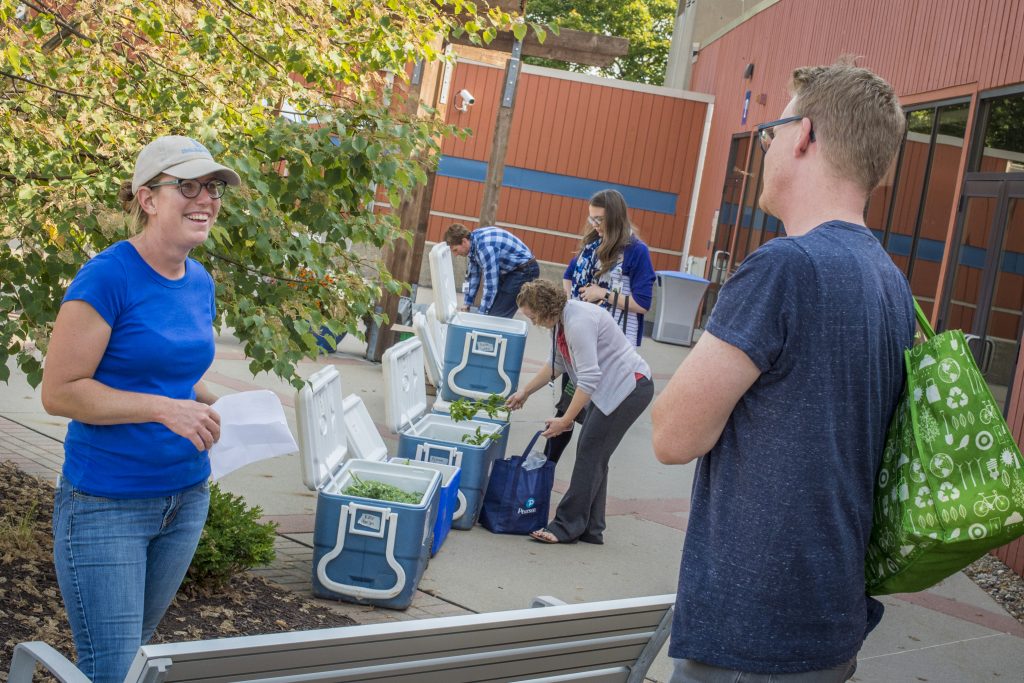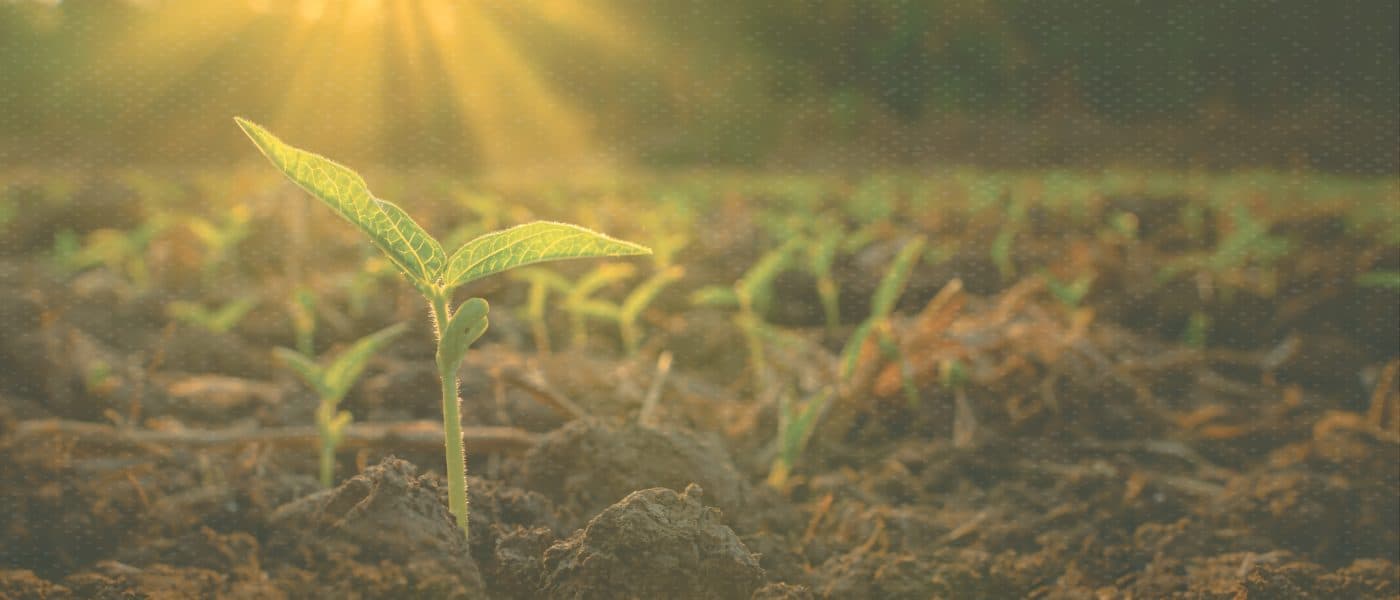“I was born in ‘86 at the end of the farm crisis,” begins Kate Edwards as she reflects on how she became a farmer. It’s not a common starting point for a young farmer story. Having seen her grandparents struggle to hold onto their farms, Kate says she was very aware of how it affected her family. “As a young child, I knew I wanted to make it my life’s work to promote more small farms.”
Growing up in Iowa, Kate didn’t believe that she, as a woman, could be a farmer herself. “At the time I didn’t recognize that all the farmwomen I knew themselves were farmers,” she explains. “They couldn’t call themselves farmers, they were ‘farm wives,’ even though they were doing just as much work as their husbands!” She laughs and says, “I thought my one shot was to marry a farmer.” When the right farmer didn’t come along, she continued to focus on her desire to be a small farm advocate. She was in graduate school at the time, earning a degree in engineering, a skill she hoped to use to help farmers on their own farms. The network of women around her had other plans though.
“I’d rather be walking to a barn!”
Kate’s book club was reading Wendell Berry’s Hannah Coulter, the story of an elderly “farm wife” reflecting on her life on a farm and in a rural community. It ends with the eventual return of Hannah’s grandson to carry on the farm tradition. At the meeting of the book club, Kate told her friends of her love of farming. Those friends told her in no uncertain terms, “Kate, you’re a woman, but you can farm!” By that time, she’d accepted a job in the Twin Cities, but on her walk to work one day she realized, “I’d rather be walking to a barn!” She took a year to intern on some farms and spend time with her grandfather, grandmother and uncle on their farms. By 2010, she was walking to the barn to start farming on her own rented acre of ground called Wild Woods Farm near Iowa City.
Kate’s first inclination was to grow corn and beans, a standard model of agriculture in Iowa and in her family. But as Kate explains, “When I started to look at the cost of farming, and the millions of dollars and family support that it takes to get into conventional farming, I knew I had to pick a specialty crop.” She had gardened before, and due to her graduate research for her degree in agricultural engineering and bio-renewable resources and technology, she knew how to scale up processes. She calculated that an acre of vegetables is equal to 400 times the size of a family garden. So, she says, “I looked at what I had grown in my garden in the past and multiplied it by 400!”
As she started out, Kate was encouraged once again by a woman: Susan Jutz, one of the first CSA (Community-Supported Agriculture) farmers in the state of Iowa. Kate got involved with Practical Farmers of Iowa (a membership group of Iowa farmers committed to moving their operations toward sustainability) and, she says, “I realized there were other women farmers I could look up to. I got paired as a mentee with Susan, who took me under her wing and taught me how to farm. Without her example, I wouldn’t have been able to realize I could do it.”
Five years into farming, in 2015, Kate had to find a new piece of ground to farm. She moved her 150-person CSA operation to the 10-acre farm she has now with a five-year ground lease and ownership of the buildings that house herself and her equipment. She says, “The landowner wanted to see me farm there – they wanted to support my dream. Through the process, I became well versed in the leasing process and what all the options are for farmers. So, I started to put those skills to work for other farmers.”
Kate connected with Renewing the Countryside, which received USDA funding for its Farmland Access Hub to assist new farmers in Iowa, Minnesota and Wisconsin with their land access challenges. Kate explains, “They wanted farmers to lead farmers through this process, so they hired me to work in the winter months with any beginning farmer in Iowa seeking access to farmland.” As Iowa’s Farmland Access Navigator, Kate meets with over a dozen clients every winter, helping them through the process of first assessing their needs and possibilities, and then helping them get through the process of buying or renting land. Kate believes that individual coaching, which might have been provided by a family member in past generations, is critical for new farmers. The Land Access Hub model is based on one pioneered by Land for Good, a Farm Aid grantee, and includes access to free legal counsel necessary to finalizing a farmland acquisition. Kate says, “A lot of times people have a solution in their own story. We’re part navigator/part coach, to help them find their solution. Susan had helped me through the process and now I pass that along to other farmers.”
“Less than one percent of the population farms, so I believe that we need more farmers on the land, and I’ll do what I can do to help that.”
In addition to working with individual farmers, Kate advocates for small farms through her membership in Practical Farmers of Iowa, the Farm Bureau and other farm groups. She says, “I’m passionate about working with all the organizations working to advance agriculture. The advocacy I do ties into my dream of working on behalf of farmers and farming myself.” Of the divisions that some seek to sow in agriculture, Kate says, “We’re all one big farming community and we all do well when we work on behalf of each other. I work with all farms. Less than one percent of the population farms, so I believe that we need more farmers on the land, and I’ll do what I can do to help that.”
Kate feeds 200 families in the summer, growing 10 acres of 150 varieties of 30 types of vegetables. She follows organic practices and enjoys growing the variety of produce a CSA requires. During the peak summer months, she employs three full-time and two-part time employees. CSA members pick up their shares weekly during harvest season at six different pick-up sites. Farmer Kate is there at each pick up site, offering tips and tricks to help people best store and prepare their food. “Because I staff it myself, people have a direct connection to their farmer. It’s a great way to connect people to how to use their food. Customers come back year after year—it becomes part of peoples’ lives. As a farmer, it’s a beautiful thing to have a weekly relationship with the people who eat the food I grow. I feel privileged that we get to build that community.”
Kate’s farm crew benefits from her skills and expertise too. She explains, “Turnover in our staff is part of the nature of the work. People go on to start their own farms, or they go work for farm and food organizations.” For those using the job as a stepping stone to their own farm, Kate serves as a mentor. “As we work, we talk about skill building, how I can help them think through their farmland access plan or help create and hone their business plan.”
Kate’s work on the farm and off is in service of helping new farmers tackle the biggest challenges she thinks they face: Secure land access and learning how to farm. She cites another challenge for all of us, which she describes as a long-term issue: The reality that food prices don’t necessarily support the farm economy in an appropriate way. She explains, “Of all the countries, ours spends the smallest part of our household budgets on food. To have long-term viability of farms, so that we can have secure access to food, we need to make sure we’re adequately supporting our farms.”
To increase access to healthy food in the Iowa City community, Wild Woods Farm makes donations to the local food pantry. Additionally, when shareholders are out of town, and can’t pick up their CSA shares, Kate works with them to donate it to the food pantry, so their food dollar is still giving to someone.
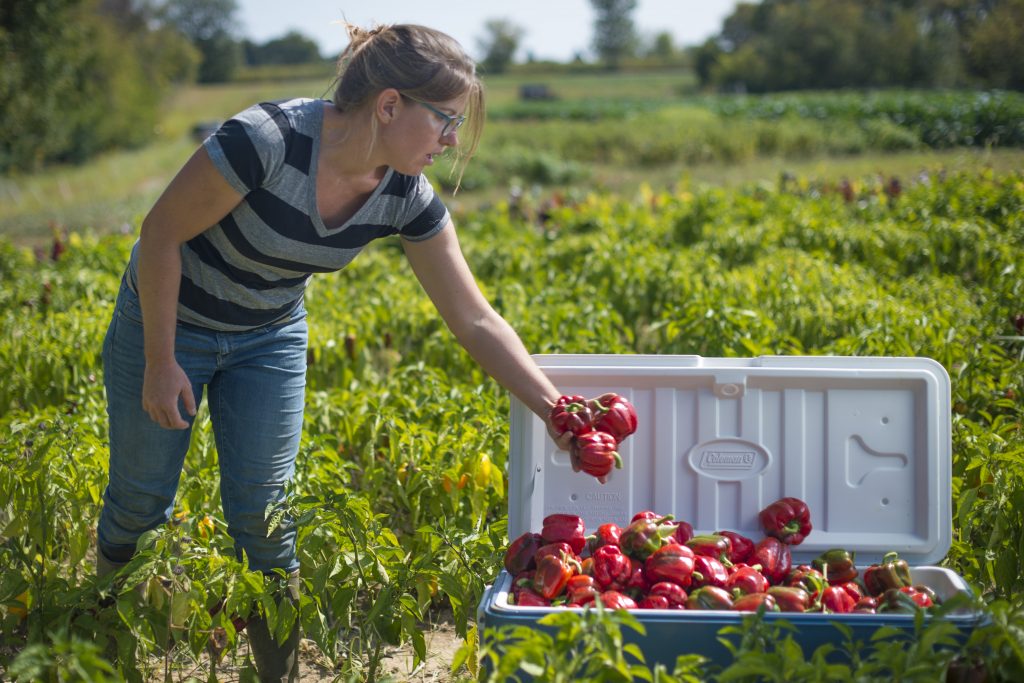
Along with these peppers, Kate grows 30 types of vegetables with 150 varieties. USDA Photo by Preston Keres
Kate plans another move for her farm soon, this time to land she herself owns. According to the USDA definition of a “beginning farmer” as one farming less than 10 years, Kate has one year left to take advantage of farmland access programs offered by the USDA. Kate says, “I want to continue to create a farm that has a lasting impact in my local community. I firmly believe in the local community and economy. We have the opportunity to give people who don’t have a farm background an experience of a local farm.” Another goal she has is to raise a new generation of farm kids. Kate knows firsthand, “The farm kids of the 80s were told not to farm. So, the people who are coming back to farm now are the grandkids of farmers. They have a generational knowledge gap.” Those are Kate’s favorite people to work with. She says, “We’re the first line of hope to get back into farming. Before we lose it to another generation, I hope we can get some of those folks back on the land.”
With her incredible gratitude to all those who came before her to pave the way for her to farm, to her mentoring of the next generation of farmers, Kate Edwards is a true Farmer Hero!
Learn More
To learn more about the Farmland Access Hub, visit gotfarmland.org
And if you’re looking for a farm job this summer, Wild Woods Farm is hiring! Visit the farm website for more information. Or if you are local to Iowa City, join Wild Woods for a summer of sustainable healthy eating, they still have openings for this summer’s CSA.
